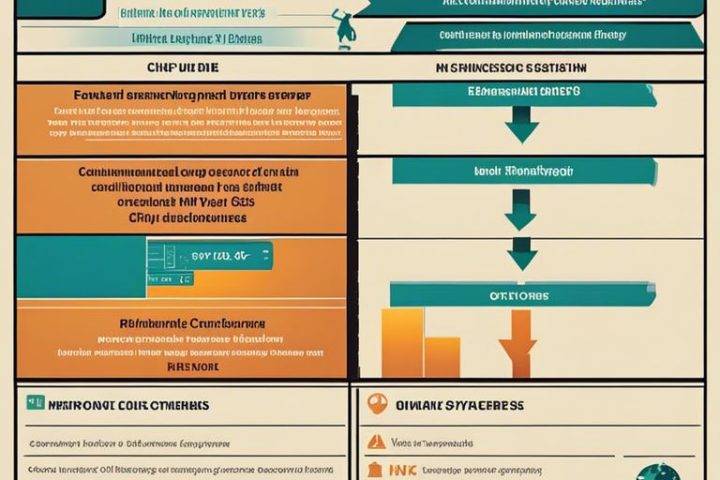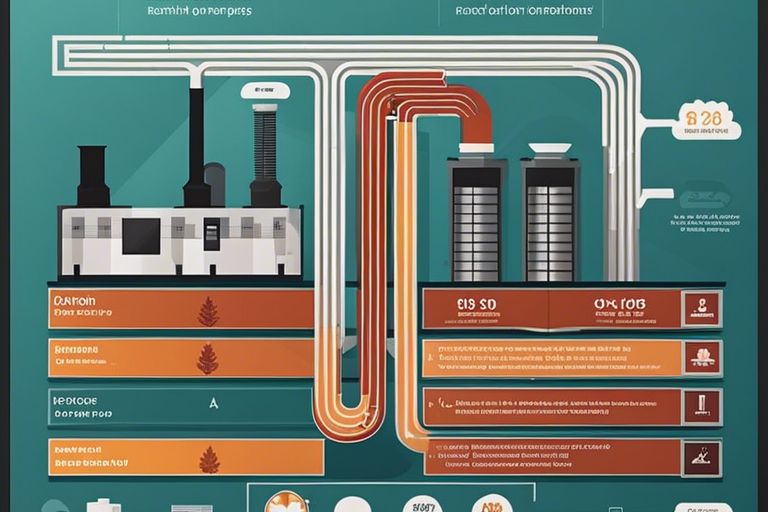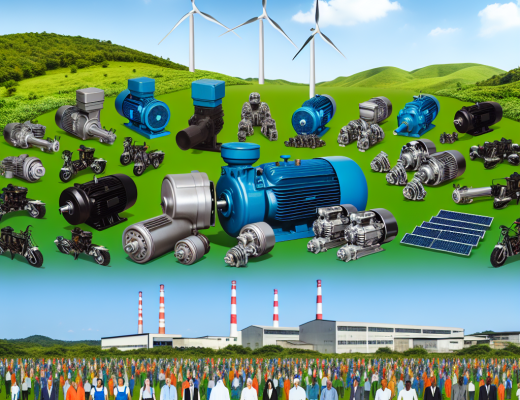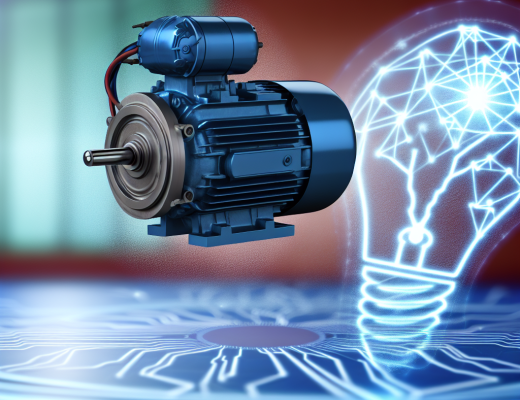Cost-savings are just one of the significant advantages when it comes to implementing Combined Heat and Power (CHP) systems in your building. By generating electricity and capturing waste heat for heating and cooling purposes, you not only reduce your utility bills but also minimize carbon emissions. This efficient technology provides reliable power, increases resilience during outages, and offers a sustainable solution for your energy needs. Discover how incorporating CHP systems can benefit your facility and the environment.
Energy Efficiency
Reduced Greenhouse Gas Emissions
One of the key benefits of Combined Heat and Power (CHP) systems is reduced greenhouse gas emissions. By generating electricity and capturing waste heat to use for heating or cooling, CHP systems significantly reduce emissions compared to traditional power plants. This is because CHP systems utilize fuel more efficiently, resulting in lower carbon dioxide emissions and helping to combat climate change.
Lower Energy Costs
With Combined Heat and Power systems, you can benefit from lower energy costs due to the increased efficiency of generating both electricity and useful heat from the same fuel source. This means that you can reduce your energy bills while also lowering your overall energy consumption. Implementing a CHP system can help you save money in the long run while improving your energy efficiency.
Energy efficiency is not only about saving money but also about reducing your environmental impact. By incorporating Combined Heat and Power systems into your energy strategy, you can minimize waste and maximize the use of resources, contributing to a more sustainable future for the planet.
Increased Reliability
On-Site Power Generation
Generation of power on-site using combined heat and power (CHP) systems can significantly increase the reliability of your energy supply. By producing electricity right where it is needed, you eliminate the risks associated with power outages or disruptions in the grid. In the event of a grid failure, your facility can continue to operate smoothly, ensuring uninterrupted power supply for your operations.
Reduced Grid Dependence
Generation of power through a CHP system also reduces your dependence on the grid. By producing a portion of your electricity needs on-site, you lessen your reliance on the external power grid. This reduces your vulnerability to grid failures, fluctuations in energy prices, and potential disruptions in the supply chain. Additionally, having a CHP system in place provides you with the flexibility to generate power independently, giving you more control over your energy usage and costs.
A CHP system can also be equipped with backup capabilities, such as battery storage or backup generators, further enhancing your energy security. This means that even in extreme circumstances, you can count on your CHP system to keep your operations running smoothly.
Financial Benefits
Now let’s investigate the financial benefits of installing a Combined Heat and Power (CHP) system in your property.
Government Incentives and Grants
Grants: One of the significant financial advantages of investing in a CHP system is the availability of government incentives and grants. These financial support programs can help offset the initial costs of purchasing and installing a CHP system, making it a more feasible option for many property owners. By taking advantage of these grants, you can significantly reduce your upfront investment and accelerate the payback period for your CHP system.
Increased Property Value
Incentives: Installing a CHP system not only provides you with ongoing cost savings on your energy bills but can also increase the overall value of your property. Properties equipped with energy-efficient systems like CHP are attractive to potential buyers and tenants who are looking for sustainable and eco-friendly living options. This can give your property a competitive edge in the real estate market and potentially lead to higher resale or rental value in the future.
Additionally, with the growing focus on sustainability and energy efficiency, having a CHP system in place demonstrates your commitment to reducing carbon emissions and operating a more environmentally friendly property, which can further enhance its appeal and value in the eyes of environmentally conscious individuals.
Environmental Advantages
Reduced Air Pollution
The use of Combined Heat and Power (CHP) systems can significantly reduce air pollution compared to traditional power generation methods. By producing electricity and heat simultaneously, CHP systems are more efficient and generate lower levels of harmful emissions such as carbon dioxide, nitrogen oxides, and sulfur dioxide. This helps improve air quality and reduces the environmental impact of energy production. Less pollution means cleaner air for you and your community to breathe, leading to better overall health outcomes.
Conservation of Natural Resources
To further benefit the environment, CHP systems contribute to the conservation of natural resources. By utilizing waste heat that would otherwise be lost in conventional power generation, CHP systems maximize energy efficiency and reduce the reliance on fossil fuels. This leads to less depletion of finite resources like coal, oil, and natural gas, helping to sustain the environment for future generations.
Pollution: In addition to reducing air pollution, the conservation of natural resources through CHP systems also helps to mitigate environmental degradation and combat climate change. By using energy more efficiently and tapping into alternative sources such as biomass or biogas, CHP systems play a crucial role in promoting sustainability and reducing greenhouse gas emissions.
Improved Energy Security
Unlike traditional energy systems that rely solely on the grid for power supply, combined heat and power (CHP) systems offer improved energy security for your facility. By generating electricity on-site, you are less susceptible to disruptions in the grid caused by severe weather, cyber attacks, or other unexpected events.
Reduced Risk of Power Outages
Outages can be costly and disruptive to your operations. With a CHP system in place, you can significantly reduce the risk of power outages. In the event of an outage on the main grid, your facility can continue to operate smoothly and efficiently with the power generated by the CHP system, ensuring uninterrupted power supply for critical operations.
Enhanced Energy Independence
With a CHP system, you not only reduce your reliance on the grid but also gain enhanced energy independence. By producing your own electricity and heat on-site, you have greater control over your energy supply and are less affected by fluctuations in energy prices or supply chain disruptions. This independence empowers you to make strategic decisions tailored to your specific energy needs.
Energy independence is crucial for businesses and organizations looking to secure a stable and reliable energy source. By investing in a CHP system, you not only improve your energy security but also position yourself as a proactive and resilient entity in the face of energy challenges.
Applications and Industries
Industrial Processes
For industrial processes, Combined Heat and Power (CHP) systems offer a range of benefits. By simultaneously generating electricity and capturing waste heat for heating or cooling purposes, CHP systems can significantly increase overall energy efficiency. This is especially important for industries with high energy demands, such as manufacturing plants, refineries, and chemical processing facilities. Implementing a CHP system can help reduce energy costs, lower greenhouse gas emissions, and enhance energy security.
Commercial Buildings
To optimize energy usage in commercial buildings, investing in a Combined Heat and Power (CHP) system can be a game-changer. These systems are particularly well-suited for buildings with consistent electricity and heating or cooling needs, such as office complexes, hotels, and hospitals. By generating electricity on-site and utilizing waste heat for building heating or cooling, CHP systems can significantly lower utility bills and increase overall energy reliability.
This means that your commercial building can become more sustainable and resilient, ensuring a stable energy supply even during peak demand periods. Additionally, CHP systems can help reduce strain on the electrical grid and contribute to a more efficient and environmentally friendly energy sector.
Residential Areas
The use of Combined Heat and Power (CHP) systems in residential areas can bring numerous advantages. By integrating a CHP system into a neighborhood or community, households can benefit from lower energy costs, increased energy efficiency, and improved energy resilience. These systems can be particularly advantageous in areas where power outages are common, as they can provide a reliable source of electricity and heat even during emergencies.
The implementation of CHP systems in residential areas can also help reduce carbon emissions and promote sustainable living practices. By harnessing both electricity and thermal energy from a single system, homeowners can enjoy increased energy independence and contribute to a more environmentally friendly energy landscape.
Summing up
Taking this into account, it is clear that combined heat and power systems offer numerous benefits for both residential and commercial buildings. By generating electricity and capturing waste heat for heating and cooling purposes, these systems can significantly reduce energy costs and greenhouse gas emissions. Additionally, CHP systems provide a reliable and resilient source of power, increasing energy security and minimizing the risk of power outages. By considering the advantages of CHP systems, you can make a more informed decision when it comes to choosing an efficient and sustainable energy solution for your building.





